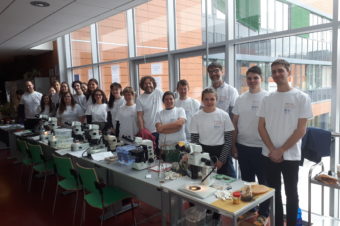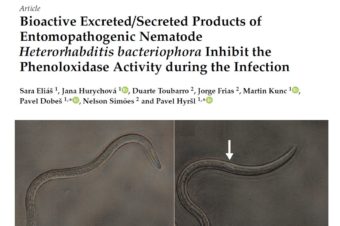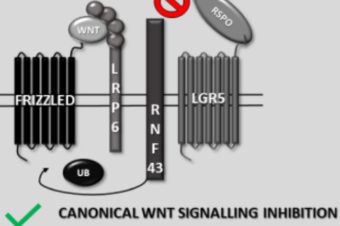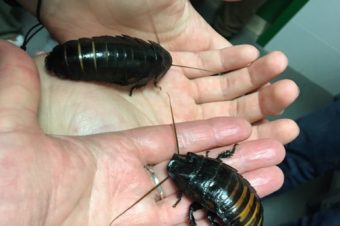Abstract:
Overwintering is a challenging period in the life of temperate insects. A limited energy budget characteristic of this period can result in reduced investment in immune system.
Here, we investigated selected physiological and immunological parameters in laboratory-reared and field-collected harlequin ladybirds (Harmonia axyridis).
For laboratory-reared beetles, we focused on the effects of winter temperature regime (cold, average, or warm winter) on total haemocyte concentration aiming to investigate potential effects of ongoing climate change on immune system in overwintering insects.
We recorded strong reduction in haemocyte concentration during winter; however, there were only limited effects of winter temperature regime on changes in haemocyte concentration in the course of overwintering. For field-collected beetles, we measured additional parameters, specifically: total protein concentration, antimicrobial activity against Escherichia coli, and haemocyte concentration before and after overwintering.
The field experiment did not investigate effects of winter temperature, but focused on changes in inducibility of insect immune system during overwintering, that is, measured parameters were compared between naïve beetles and those challenged by E. coli. Haemocyte concentration decreased during overwintering, but only in individuals challenged by E. coli. Prior to overwintering, the challenged beetles had a significantly higher haemocyte concentration compared to naïve beetles, whereas no difference was observed after overwintering. A similar pattern was observed also for antimicrobial activity against Escherichia coli as challenged beetles outperformed naïve beetles before overwintering, but not after winter. In both sexes, total protein concentration increased in the course of overwintering, but females had a significantly higher total protein concentration in their hemolymph compared to males.
In general, our results revealed that insect’s ability to respond to an immune challenge is significantly reduced in the course of overwintering.
Ecology and Evolution; Pub Date : 2021-03-11 , DOI: 10.1002/ece3.7323
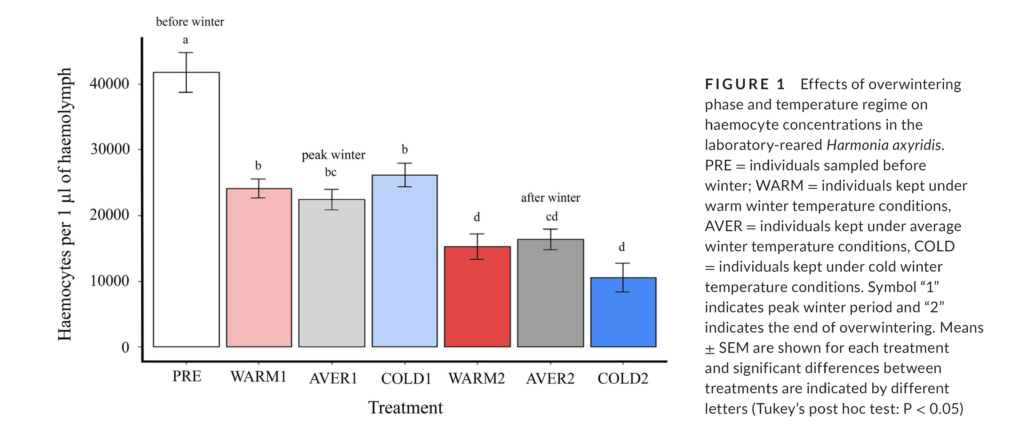
Authors:
Michal Řeřicha1 | Pavel Dobeš2 | Michal Knapp1
1 – Department of Ecology, Faculty of Environmental Sciences, Czech University of Life Sciences Prague, Prague -Suchdol, Czech Republic
2 – Department of Experimental Biology, Faculty of Science, Masaryk University, Brno, Czech Republic

